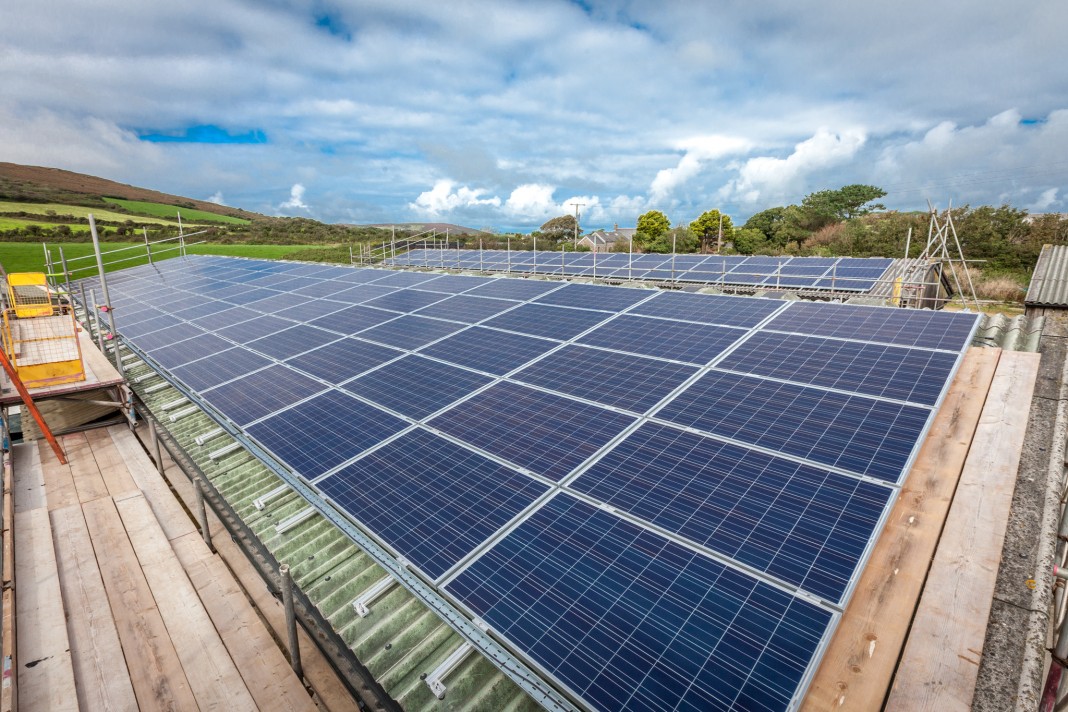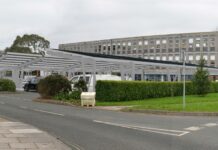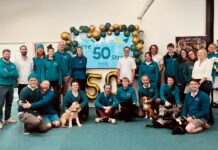A west Cornwall dairy farm is producing thousands of gallons of environmentally friendly milk with help from the sun after installing a 164 panel solar PV system on the roofs of its milking parlour and barns.
The Knowles family – which owns and runs Trink Dairy – a 400 acre farm just outside St Ives with a dairy herd of 300 Fresian Jersey cows, is now using solar energy to help with its milk production, which is used to create Rodda’s Clotted Cream.
With the milking process involving the use of energy consuming cooling equipment and hot water cleaning systems, dairy owner Chris Knowles said the environmental aspects of milk production was an influencing factor behind the decision to turn to solar.
He said: “As a business we like to have as low an impact on the environment as possible. The herd is grass fed spending most of the year in our fields with the majority of the milk production taking place in the summer months when the milk yield is naturally high.
“In terms of energy usage, the biggest impact comes from cooling, cleaning and milking so we looked at ways in which renewable energy could help reduce our costs and environmental impact.
“Given our sensitive, environmental location a wind turbine was not an option but with barns and the milking parlour we had a lot of ready-made roof space to help harness the sun, so looked at the benefits of solar with Happy Energy.”
One challenge for the Happy Energy team was to install the system on a working dairy farm, scheduling installation works around milking times and the arrival of the cows into the yard and parlour.
Knowles added: “The Happy team were really good and understood that work had to revolve around the daily activities of the farm which meant being flexible in terms of working hours, which they were.
“The installation went smoothly and we are really delighted that as a business we are now harnessing the power of the sun to create energy and minimise our impact on the environment.”
According to Happy Energy CEO Adrian Wright agricultural businesses such as Trink Dairy with large roofs or outdoor spaces can still benefit greatly from harnessing solar power.
“For many working farms or those that have diversified into food production or tourism, energy remains one of the most expensive costs they face, so it makes sense – given the open locations they are predominantly in – to harness natural energy such as the sun to generate their own power and reduce costs.
“The added double benefit is that any excess energy produced can then be sold back to the grid and they will also receive Feed in Tariff payments which are still available for new installations.”









